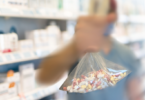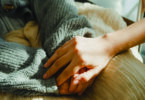As temperatures plunge in Toronto, Dr. Marc Jeschke, Director, Ross Tilley Burn Centre at Sunnybrook, has a reminder for those planning to spend time outside: frostbite can be a serious injury.
“Frostbite is no joke. The effect it has on the skin is similar to a burn, so people with severe frostbite are treated here in our burn centre,” he says.
Here are five tips to avoid frostbite, and what to do if you think you may have it:
1) Layer up
If you know you’ll be outside for an extended period of time, dress for the weather.
“The easiest thing you can do to prevent frostbite is to dress properly, with a warm coat, boots, hat and gloves,” says Dr. Jeschke.
2) Wear gloves at the gas station
Take extra care when fueling up your car in the winter, and wear gloves when doing so.
“Getting gasoline on your hands when it’s very cold out will cause your skin to freeze within seconds, because it conducts the cold extremely well,” he says.
3) Don’t use hot water to thaw out
If you think you have frostbite, get indoors as soon as possible and use lukewarm water to warm the affected area. You can also take ibuprofen to help ease pain and swelling.
“Hot water can actually cause more damage. So can a direct heat source, like a fireplace, because your skin has lost sensation and you won’t realize you’re actually burning yourself,” says Dr. Jeschke.
4) Know the signs of severe frostbite
There are different degrees of frostbite, ranging from superficial (called frostnip) to deep freezing that can destroy bone. The feeling of pins and needles, lack of feeling in a certain area, or skin that is hard and pale may mean you’ve developed frostbite.
“If your skin turns black or some other strange colour, and then blisters, you’re in trouble. Get medical attention immediately,” says Dr. Jeschke.
5) Alcohol and cold temperatures don’t mix
“Drinking alcohol can give you a false sense of warming. It, in fact, widens your blood vessels, increasing heat loss and the risk of frostbite,” says Dr. Jeschke.
Alcohol can also affect your judgment, causing you to make poor decisions like going outside without proper clothes on or passing out in a snow bank.
“You may not feel the cold when you’re intoxicated. Or maybe you feel pain at first, but suddenly don’t feel cold anymore. When the pain goes away, that’s not a good sign,” says Dr. Jeschke. “Using common sense will help you avoid a frostbite injury.”








